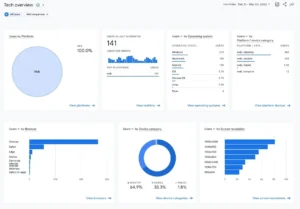Search Engine Optimization (SEO) is a crucial factor that determines the success of any website. If you own a WordPress website, optimizing it for SEO is essential to ensure that your website ranks well in search engine results pages (SERPs) and attracts traffic. In this guide, we’ll take you through the process of optimizing your WordPress site for SEO.
1. Conduct Keyword Research
The first step in optimizing your WordPress site for SEO is to conduct keyword research. This involves identifying the keywords that your target audience is searching for and incorporating them into your content. There are several tools available, such as Google Keyword Planner, SEMrush, and Ahrefs, that can help you identify relevant keywords.
2. Optimize Your Content
Once you have identified your target keywords, the next step is to optimize your content. Make sure that your content is well-written and informative, and includes your target keywords in the title, headings, meta description, and throughout the body of the content. However, it’s important not to overuse keywords, as this can negatively impact your SEO.
3. Use SEO-Friendly URLs
Your website’s URLs should be short, descriptive, and easy to read. Avoid using long, convoluted URLs with numbers and symbols. Instead, use short, descriptive URLs that include your target keywords.
4. Install an SEO Plugin
There are several SEO plugins available for WordPress that can help you optimize your website for search engines. One of the most popular SEO plugins is Yoast SEO, which helps you optimize your content, create XML sitemaps, and more.
5. Optimize Your Images
Images are an important part of any website, but they can also slow down your website if they are not optimized properly. Make sure that your images are compressed and have descriptive file names and alt tags that include your target keywords.
Conclusion
By following these steps, you can optimize your WordPress site for SEO and improve your search engine rankings. For example, let’s say you run a food blog and want to rank for the keyword “easy dinner recipes”. By conducting keyword research, optimizing your content with the target keyword, using SEO-friendly URLs, installing an SEO plugin, and optimizing your images, you can improve your chances of ranking higher in SERPs for that keyword.
In conclusion, optimizing your WordPress site for SEO is essential to attract more traffic and improve your search engine rankings. By following these simple steps, you can improve your website’s SEO and drive more traffic to your site.



